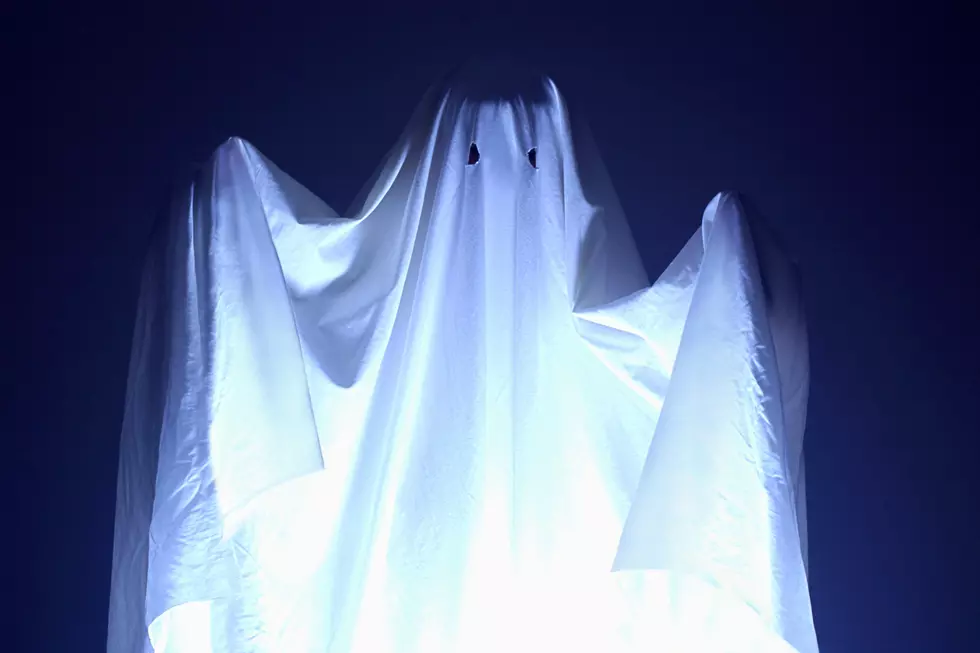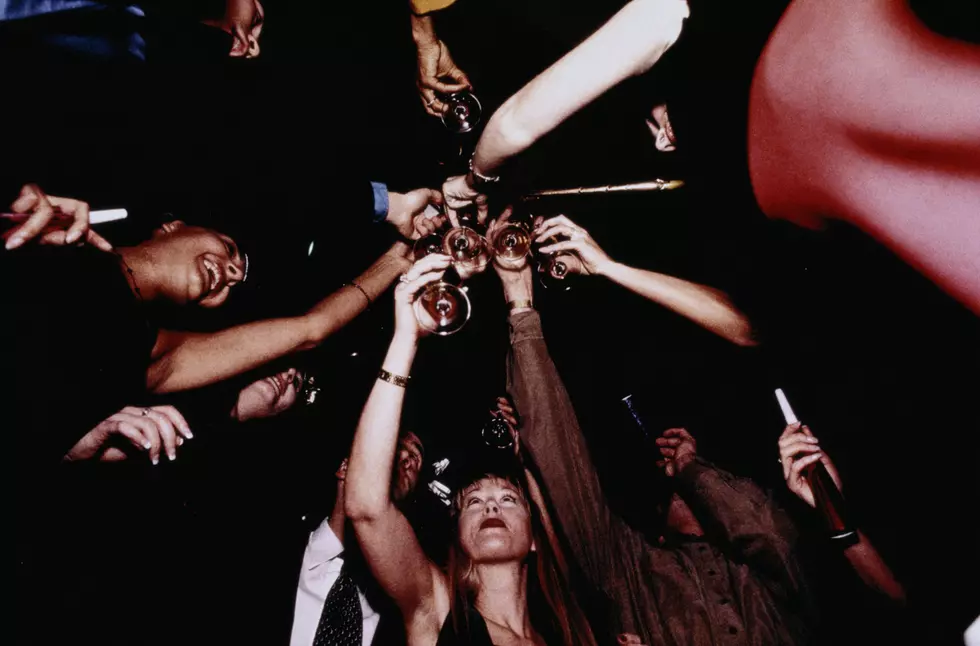25 Years Ago: Ice-T Decides to Pull ‘Cop Killer’ From Body Count’s Controversial Debut
The firestorm over Body Count’s “Cop Killer” raged for months in 1992, shortly after the rap-metal band’s eponymous debut dropped that March. Everyone from Vice-President Dan Quayle to Parent’s Music Resource Center co-founder Tipper Gore to law enforcement organizations across the country were calling for boycotts of Time Warner, the parent company of Warner Bros. Records, who released the album containing the song.
Given the committed backing of the label in the most tense of times -- and so close to the then-recent L.A. riots -- during the controversy, it was shocking when, on July 28, 1992, group frontman Ice-T asked Warner Bros. to pull the record from shelves and remove the track, saying that his stance had changed because he was concerned for the safety of the company’s employees who faced threats on their lives. At the Ma Maison Sofitel in Los Angeles in a press conference, Ice-T announced his decision to the media.
“At the moment, the cops are in criminal mode,” Ice-T said, according to The Big Payback: The History of the Business of Hip-Hop. “They’ve threatened to bomb the record company. I’m in the position now where I think Warner Bros. is taking the war for me. So, as of today, I’m gonna pull the song off the record.”
Ice-T then said he’d be giving away the song for free as a single at concerts; but what about the rest of the record? Warner Bros. released a statement saying they understood and respected the decision of their artist, adding that a new version of the LP would be in stores within a month. They also asked retail outlets to return all unsold Body Count CDs and cassettes for full credit, but ultimately it was up to the retailers.
"In response to the artist's request, we will – effective immediately – cease manufacturing and distribution of the Body Count album as it now stands and will replace it with a new version, minus 'Cop Killer' with amended artwork to reflect this change," the statement read.
The cover of the album, which featured a muscled-up black man holding a chain in one hand with the other ready to pull a gun out of his waistband, was the focus of the “amended artwork.” The words “Cop Killer” tattooed across his chest would be erased.
During the peak of the uproar, Time Warner officials declined to comment on political maneuverings of the opposition, but released a bold statement which said: "Time Warner is committed to the free expression of ideas for all our authors, journalists, recording artists, screenwriters, actors and directors. We believe this commitment is crucial to a democratic society, where the full range of opinion and thought - whether we agree with it or not - must be able to find an outlet."
Stockholders, many of them connected to law enforcement or related associations, disagreed. According to the Wall Street Journal, Philadelphia’s municipal pension fund said it would be selling $1.6 million of Time Warner stock in protest. The boycott of the company’s products included music, movies and even Six Flags theme parks.
Not only was Vice President Quayle speaking out against the song, at least 60 Congressmen sent a letter to Time Warner to denounce song, according to the book Taboo Tunes: A History of Banned Bands and Censored Songs. Police associations in Texas and Alabama Governor Guy Hunt called for record stores who carried the album to stop, and two of the largest, Trans World Entertainment and Supper Club pulled it from their shelves. There were also rumors police were pressuring independent record stores to pull the album.
“I don’t have nothing against all police,” Ice-T said at a New Music Seminar in New York that June. “I feel that if the cops were a total legit organization, not corrupt, I would probably be a cop, because I want s--- to be right. But it ain’t.”
At a July 16, 1992 shareholders meeting, Time Warner CEO Gerald Levin fielded barbs left and right from those in attendance, and from police and other law enforcement officers, some who had picketed outside Ice-T’s press conference the previous month.
''’Cop Killer' is a bitter, angry song of protest meant to express the rage and frustration a young African American feels in the face of official brutality that was symbolized for so many -- white as well as black -- by the Rodney King case," Levin said to the nonplussed shareholders
Even when Ice-T called for the pulling of the song, there were still those who were unimpressed with the move, refusing to back off.
According to Billboard, Ron DeLord, president of Combined Law Enforcement Associations of Texas said, “This doesn’t satisfy our overall problem. I want a recognition that [Time Warner] made a mistake, that they hurt some folks, and that they will be responsible in the future.”
Peter Kehoe, executive director of the New York State Sheriffs’ Association agreed, and added, “If it’s true, as Ice-T asserts, that this action has nothing to do with Time Warner, then our boycott will continue. We will need some assurance from Time Warner that this really represents a change in corporate policy.”
Perhaps most galling and audacious was when disgraced Iran-Contra figure and former National Security Council aide Oliver North, who had since co-founded the Freedom Alliance, compared the “Cop Killer” saga to the Manson murders.
"This is like Charles Manson promising to never go back to the LaBianca home again to commit a killing," he said, according to the Los Angeles Times, who added North said investigations by prosecutors were being conducted in two states. "It's too little, too late! We are going to pursue Time Warner to the full extent of the law in as many jurisdictions as we can."
After “Cop Killer” was pulled from the record, Body Count was still facing issues. Detailed in the book Somebody Scream!: Rap Music's Rise to Prominence in the Aftershock of Black Power, The Boston Police Patrolmen’s Association threatened a civil suit in early August on behalf of its 1,700 members, naming the group along with the local crew The Almighty RSO, who were gaining all the wrong kinds of notice from authorities for their song “One in the Chamba.”
Then there was a deeper criticism from within the hip-hop world. An editorial in The Source titled “Is Rap Dead?” called out Ice-T for giving in, and, citing inside information within the Warner Bros. ranks, claimed that while the label was publicly supportive of freedom of speech, behind closed doors was a different story.
“If anything objectionable was found,” the editorial read, “artists were told to make changes. And, in one case, a long-awaited, highly-touted and potentially profitable Warner Bros. project was actually pulled from the schedule because of its content and is in danger of not being released at all.”
The Los Angeles Times echoed those rumors, and noted that Dr. Dre’s song “Mr. Officer,” which described a police officer dead in a casket, would be removed from his then upcoming album The Chronic -- which would go on to be one of the most important hip-hop albums of all time. Apparently that record was passed over by multiple labels over the likely controversial track.
It was somewhat ironic then when the revamped version of Body Count landed on shelves after “Cop Killer” had been removed, the song which replaced it was a rocked-out take on the 1989 Ice-T solo track “Freedom of Speech,” which attacked the PMRC. Because in the wake of the “Cop Killer” fiasco, there would be a lengthy clampdown on that significant facet of music, and it all stemmed from a censorship battle that was hardly considered a victory in 1992.
The Top 100 Albums of the '90s
More From B93










